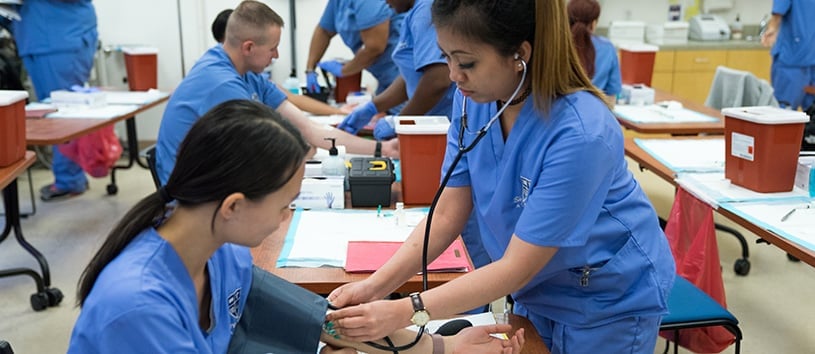Phlebotomists are professionals who are trained to draw or collect blood for medical testing, transfusions, and donation via venipuncture or pricks. Phlebotomists normally work in hospitals, clinics, laboratories, and blood donation centers.
Ideally, you do not need certification in phlebotomy to work as a phlebotomist, but it is still advised to get certified as a phlebotomist. Without a formal certification, it can be difficult to find a job. With increasing competition, most employers prefer hiring people with proper certifications.
Moreover, California, Nevada, Washington, and Louisiana are the only states that require people who are not doctors or nurses to get proper certification in order to be able to draw blood. A licensed phlebotomy certification confirms that you have been properly trained and meet all the requirements as laid down by the government.

What are the different types of Phlebotomy Certifications?
As mentioned above not all states require a phlebotomist certification and laws may differ for different states. In the state of California, phlebotomists need to be licensed in order to work professionally. There are three types of phlebotomy certification in the Baltimore, California
- Limited Phlebotomy Technician (LPT): LPTs are only allowed to do skin puncture blood collection.
- Certified Phlebotomy Technician I (CPT I): CPT Is are allowed to do venipuncture and skin punctures.
- Certified Phlebotomy Technician II (CPT II): CPT IIs are allowed to do venipuncture, arterial puncture, and skin punctures.
What is the eligibility to become a Phlebotomist?
You need a high school diploma or its equivalent to be able to go to a school. You must also be at least 18 years old.
It is good to have studied chemistry and biology in school. Make sure you have good grades in these subjects as that will give you an edge over other applicants when you apply to a school.
Make sure that the phlebotomy course you apply to is approved by the National Accrediting Agency for Clinical Laboratory Sciences (NAACLS).
Once you have completed a phlebotomy training program, you can go ahead and become certified. Again, note that certification is not a legal requirement in most states to start practicing phlebotomy. Only California, Nevada, Washington, and Louisiana require a certification to be able to work as a phlebotomist. Moreover, even if you wish to work in other states, a phlebotomy certification will only increase your chances of getting a job.
Why become a Phlebotomist in Baltimore?
Phlebotomy is a rapidly growing field. As per statistics, employment of phlebotomists is expected to grow by 25 percent between the years 2016 to 2026. Demand for phlebotomists is extremely high as hospitals and clinics always require professionals for blood work.
Moreover, you can also work part-time as a phlebotomist, as it is easy to find part-time work in this field. For example, you can work in donation camps. As a part-time phlebotomist, you can work for thirty hours or less in a week.
How much money can you make as a Phlebotomist?
The average salary for a phlebotomist is expected to be $32,230 per year. This means that you can make approximately $15.50 per hour. Most salaries range from $24,250 to over $48,030.
How long does it take to become a certified Phlebotomist?
Before you can get any of the three certifications, you will need to attend a Phlebotomy school.
Phlebotomist school covers the entire course within one or two semesters that typically last 4 to 8 months. After you complete your course, you can go ahead and get certified. Most schools even offer a certification exam at the end of the course. The certification exam usually consists of a multiple choice test followed by a practical exam.
How much does it cost to become a Phlebotomist?
Normally a Phlebotomy course can cost you around $650 to $750. This includes the registration and tuition fee and also the books required to complete the course. The certification examination cost is usually between $100- $120.
There are no free courses or certification available at the moment to become a Phlebotomist. Here are some programs and their fees:
Community College of Baltimore County costs $117 for the certification exam.
American Academy of Phlebotomy Technicians offers a training program for $650.00
Phlebotomist Training Program LLC offers a course for $700